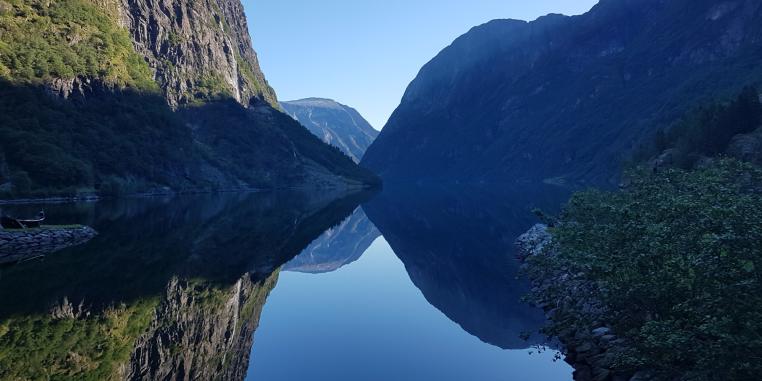
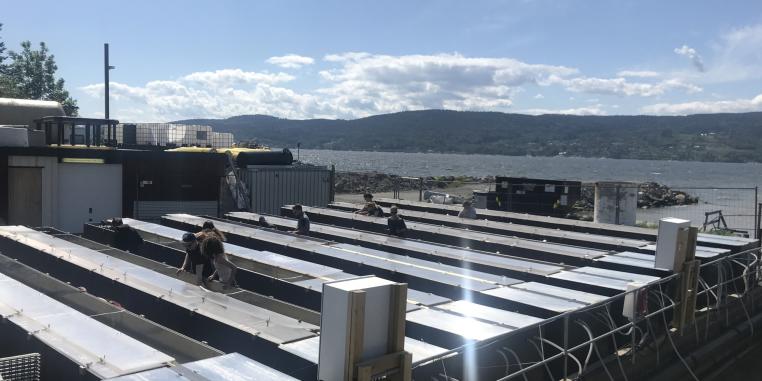
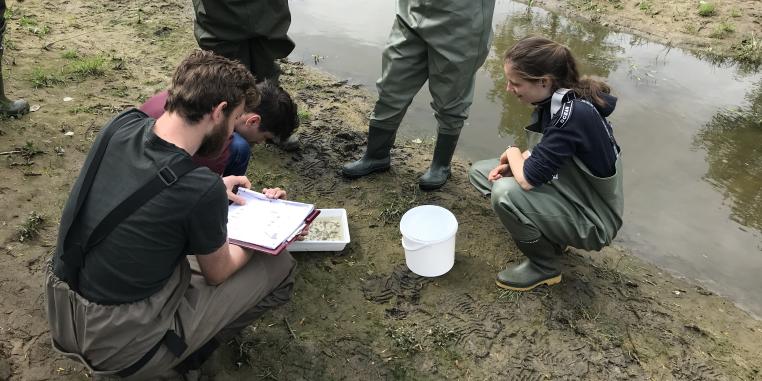
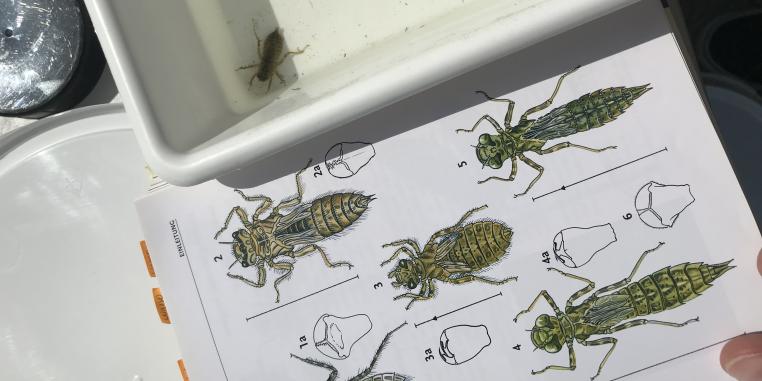
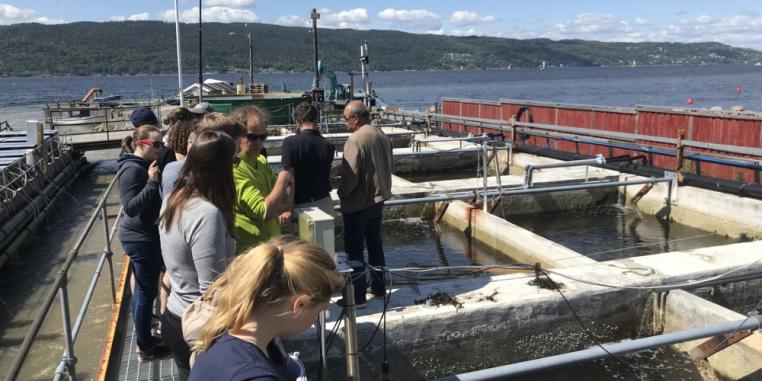
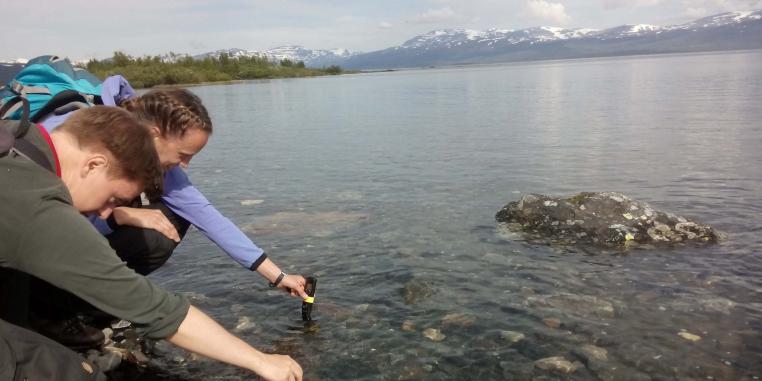


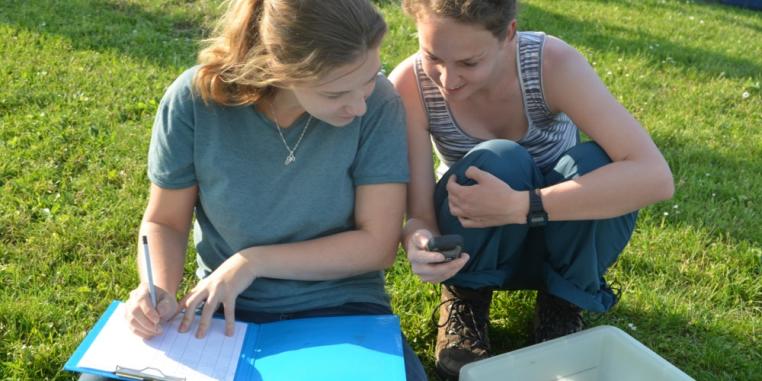











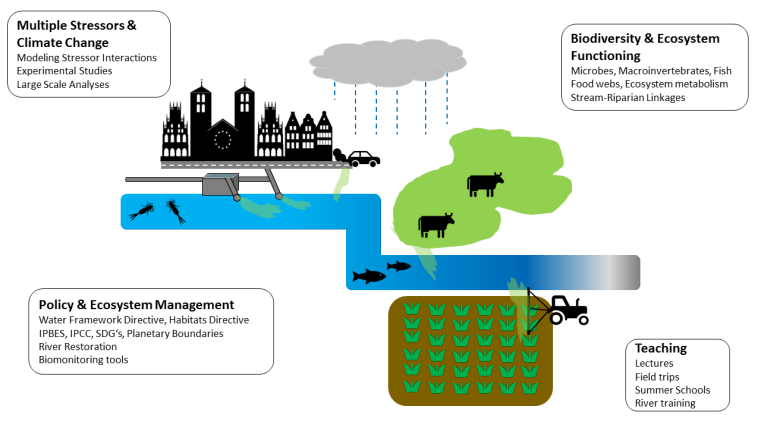
We are interested in the effects of anthropogenic stressors (e. g. climate change and land use) on our aquatic ecosystems and in the management and conservation of biodiversity and system functions in the face of global change. Our research combines field and laboratory work, experimental studies (manipulation in mesocosms) as well as the evaluation of existing data sets.
Dr. Friederike Gabel & Dr. Benjamin Kupilas (team leader)
Prof. Dr. Tillmann Buttschardt
Dr. Friederike Gabel
Dr. Benjamin Kupilas
graduate and undergraduate students
Bei der Jahrestagung der Deutschen Gesellschaft für Limnologie (DGL) bieten Katrin Wendt-Potthoff und Friederike Gabel eine Session zu Plastik in Binnengewässern – Quellen, Transport und Auswirkungen an.
Plastik wird zunehmend in der wissenschaftlichen Gemeinschaft und in der Öffentlichkeit als Umweltproblem wahrgenommen. Besonderes Augenmerk gilt dem Mikroplastik, das von Organismen aufgenommen werden kann, wegen seiner großen Oberfläche Schadstoffe adsorbieren kann und damit möglicherweise weitreichende ökologische Konsequenzen hat. Viele Seen und Flüsse enthalten Plastikpartikel, aber die unterschiedlichen Transportmuster und mögliche Wirkungen auf limnische Organismen sind unzureichend verstanden. Es ist unter anderem noch wenig darüber bekannt, wie aquatische Organismen auf Plastik und seine Additive reagieren, welche Effekte die Aufnahme von Mikroplastik auf die Physiologie von aquatischen Organismen hat und welche Effekte in der Nahrungskette auftreten können. Die Session soll dazu beitragen, einen aktuellen Wissensaustausch zu den methodischen Untersuchungsansätzen, den Quellen und Senken und den biologischen Wirkungen von (Mikro)plastik im limnischen Milieu zu ermöglichen und Ansätze für weitergehende Forschungen aufzuzeigen.
Zudem tragen zahlreiche Studierende aus den Studiengängen Landschaftsökologie und Wasserwissenschaften in Köln vor oder liefern Beiträge:
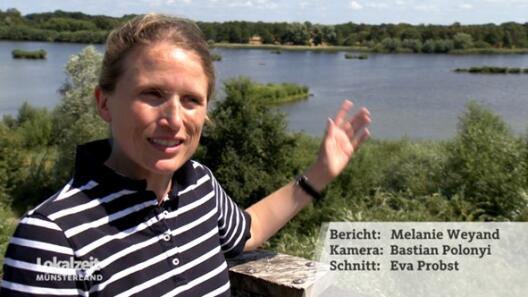
The Lokalzeit Münsterland of the WDR reported on 17.7.23 about the microplastic investigations in the sewage fields of Münster ("Rieselfelder"). The team around Dr. Friederike Gabel (ILÖK) and Prof. Dr. Bodo Philipp (Institute for Molecular Microbiology and Biotechnology) investigated the occurrence and distribution of microplastics in the bird paradise of the Rieselfelder. This revealed a very clear but heterogeneous contamination by microplastics. What effects this has on the animals living there still requires further research.
The report can be found here (German only).
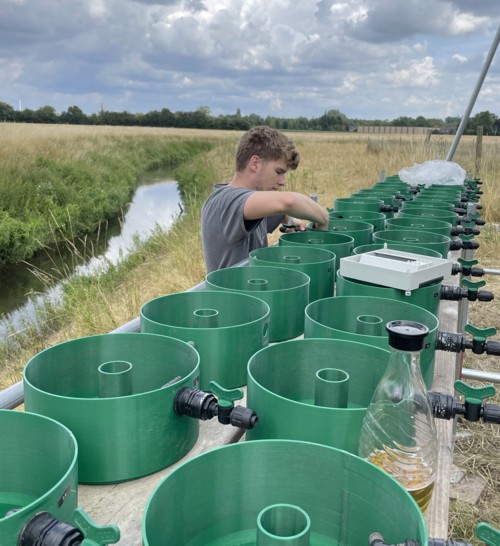
After the experiments in 2020, our mesocosm facility is back at the Münstersche Aa this summer to investigate the potential of renaturalised watercourses to cope with climate change-related stresses. The focus is on rising water temperatures and increasing periods of low water, which play a role especially in the agricultural Münsterland. For this purpose, a total of 32 mesocosms are populated with macrozoobenthos communities in order to investigate the effects of water temperature and low water levels based on the changes in species composition over time.
Riparian strips along water bodies are important habitats for the conservation and protection of biodiversity. They are also often implemented as a management measure in agricultural areas - however, there is often a lack of knowledge about how to design an optimal riparian strip in order to balance positive effects for biodiversity while taking into account limited land availability. In summer 2022, samples of different groups of organisms (e.g. spiders and ground beetles) were collected as part of a research project in Norway. In the summer semester and/or winter semester, the samples stored at the ILÖK could now be examined and evaluated. There is the possibility for parallel theses with the respective focus on different groups.
If you are interested, please contact Dr. Benjamin Kupilas (benjamin.kupilas@wwu.de)
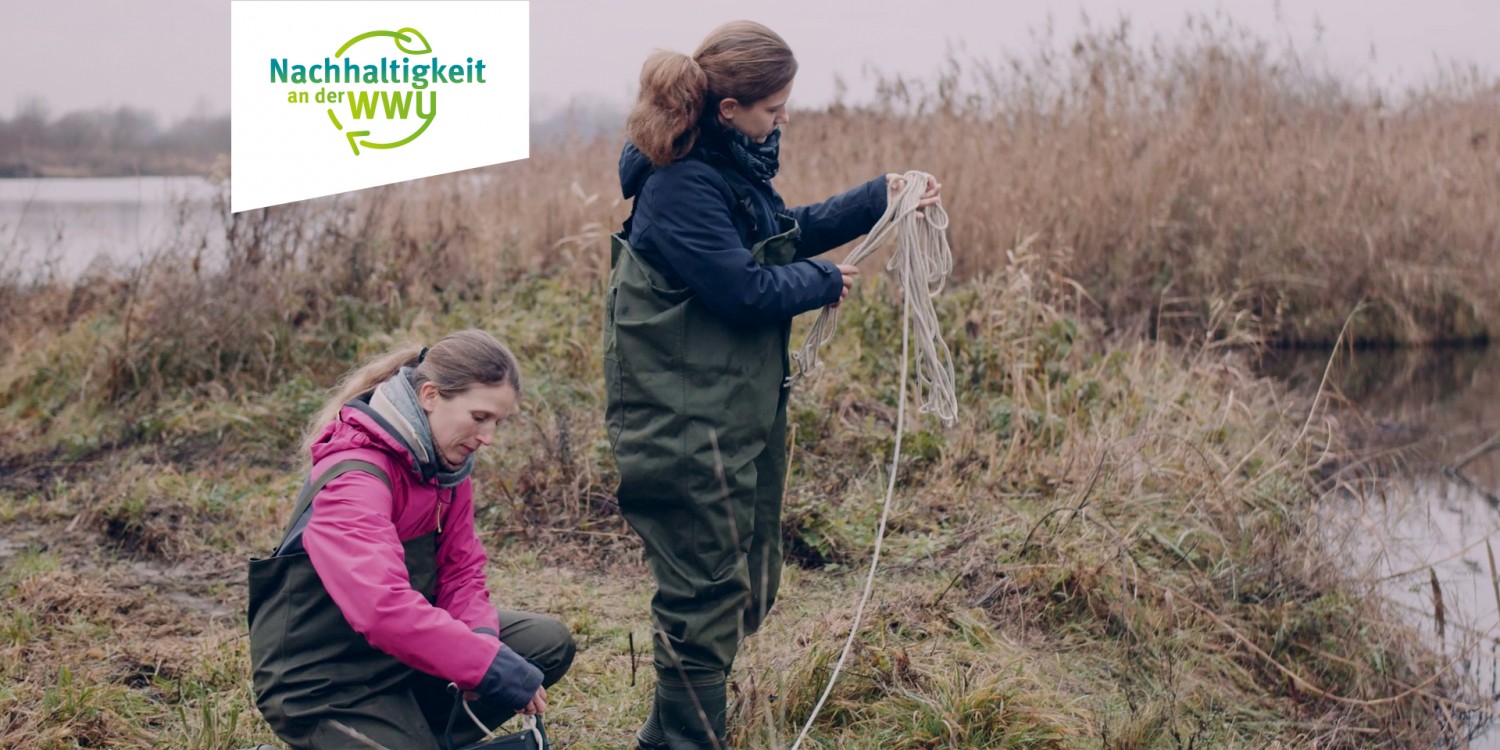
A feature on the project "Microplastics in dams and reservoirs: sedimentation, distribution, effects (MikroPlaTaS)" has been published in the series Sustainability at the WWU (in German Language). A new video informs about the project on which Dr. Friederike Gabel and Diana Michler-Kozma are the involved researchers at ILÖK. Numerous theses have also been written in this field of reserach.
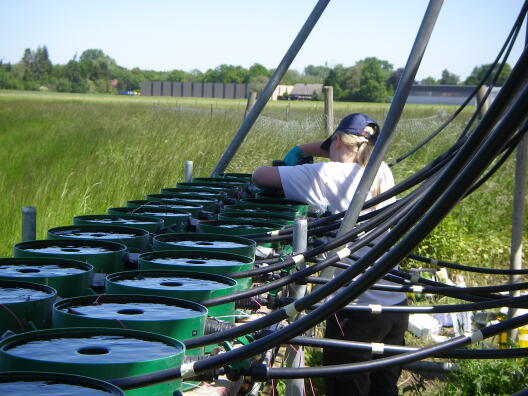
We study the possibility to actively recolonize sensitive macroinvertebrate taxa into morphologically restored stream sections under multiple stress using a stream-side mesocosm facility at the Münstersche Aa, Germany. Our facility comprises 32 circular stream mesocosms based on the ExStream set up (Piggott et al. 2015, Global Change Biology, 21(1):206–222. https://doi.org/10.1111/gcb.12661) which enables a high degree of realism as they are run with stream water, which permits natural immigration and emigration of organisms, at the same time offering an unparalleled combination of strict control of experimental variables and excellent statistical power.
Summer 2021
S: Landschaftsnutzung und -management (M7, LÖK)
E: Exkursion Lofoten (B10 / M11, LÖK)
Winter 2021/22
P: Forschungsprojekt (M13, LÖK)
S: Ökologische Verbesserung von Gewässern (M15 WaWi)
S: Integrated Water Resources MAnagement (M2 WaWi)
Limnolab holds equipment to conduct fieldwork in aquatic ecosystems, with the focus on the study of biodiversity and ecosystem functioning. Moreover, we are closely collaborating with the ILÖK lab, which enables us to analyse water chemistry and stables isotopes (N, C) to investigate food webs. The inventory of our lab includes waders, electrofishing equipment, 200 temperature loggers etc. Furthermore, we are continuously extending